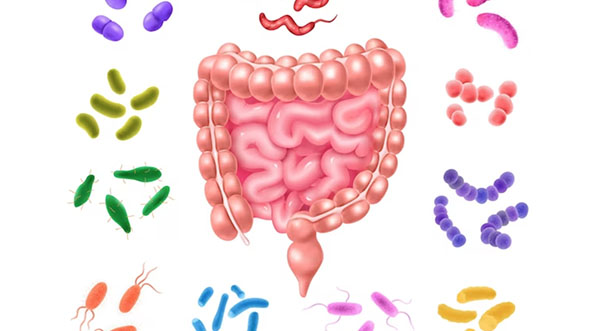Protector of Health: Strategies to Combat Parasites in the Human Body
By Space Coast Daily // February 6, 2024

Parasites, those organisms that subsist by exploiting another living being, pose significant threats to human health and well-being.
Whether microscopic entities or larger worms, these invasive organisms can induce discomfort and even severe medical conditions. Despite being susceptible to such parasitic invaders, humans possess the capacity to counteract their impact through informed knowledge and strategic interventions. By understanding the nature of parasites and implementing effective measures, individuals can shield themselves from potential harm and safeguard their overall health and vitality. One such measure is the use of Germivir, a product designed to combat parasitic infections and promote well-being.
Strategies to Combat Parasites
Combatting parasites requires a multifaceted approach that includes preventive measures, proper hygiene practices, and targeted treatments when necessary.
1. Maintain Good Hygiene Practices
-
Hand Washing:
Regularly washing your hands with soap and water, especially before eating and after using the toilet, is crucial to prevent the transmission of parasites. Proper hand hygiene helps remove parasites that may be present on your hands, reducing the risk of ingestion and infection.
-
Food Safety:
Ensuring that food is cooked thoroughly eliminates parasites that may be present in raw or undercooked meat, fish, and vegetables. Cooking food to the recommended temperature kills parasites and their eggs, making it safe for consumption.
-
Clean Water:
Drinking clean, filtered water is essential for preventing waterborne parasitic infections. When traveling to regions where water quality is questionable, opt for bottled water or use water purification methods to ensure that the water you drink is safe and free from parasites.
-
Personal Hygiene:
Maintaining cleanliness in your living spaces, including regular cleaning of surfaces and disinfection of frequently-touched objects, helps prevent the spread of parasites. Washing clothing and bedding in hot water and drying them thoroughly also eliminates parasites that may be present. And using products like Germivir can further aid in keeping your environment free from harmful pathogens.
2. Adopt Healthy Eating Habits
-
Fibre-Rich Foods:
Incorporating plenty of fruits, vegetables, and whole grains into your diet provides essential nutrients and dietary fiber that support digestive health. Fibre helps promote regular bowel movements, which can aid in expelling parasites from the body.
-
Probiotics:
Consuming foods rich in probiotics, such as yogurt, kefir, and fermented vegetables, helps maintain a healthy balance of gut bacteria. Probiotics support the body’s natural defenses against parasites and promote overall gastrointestinal health.
3. Practice Environmental Awareness
-
Avoiding Contaminated Environments:
Being mindful of environments where parasites thrive, such as areas with standing water, dense vegetation, and poor sanitation, can help reduce your risk of exposure. Avoiding contact with contaminated soil, water, and surfaces minimizes the likelihood of parasitic infections.
-
Insect Repellents:
Using insect repellents containing DEET or picaridin, wearing long sleeves and trousers, and using mosquito nets can help prevent insect bites and reduce the risk of parasitic infections transmitted by mosquitoes, ticks, and fleas.
-
Pet Care:
Ensuring that pets receive regular veterinary care, including deworming treatments, helps prevent the transmission of parasites to humans. Practicing good hygiene when handling pets and their waste further reduces the risk of parasitic infections.
4. Seek Medical Attention When Necessary
-
Prompt Diagnosis and Treatment:
If you suspect that you have a parasitic infection or experience symptoms such as persistent abdominal pain, diarrhea, fever, or unexplained weight loss, seek medical attention promptly.
Understanding Parasites: Types
Before delving into strategies to combat parasites, it’s essential to understand the types of parasites that can affect the human body associated with them.
1. Protozoa
Protozoa are single-celled organisms that can infect humans and cause a variety of diseases. These microscopic parasites are often transmitted through contaminated food and water, as well as through insect vectors such as mosquitoes. Some common protozoal diseases include:
- Malaria: Malaria is a life-threatening disease caused by the Plasmodium parasite, which is transmitted through the bite of infected Anopheles mosquitoes. Symptoms of malaria include fever, chills, headache, and muscle aches.
2. Helminths
Helminths are parasitic worms that infect humans and can cause a range of diseases. These worms vary in size and shape and can inhabit different parts of the body. The most common helminth infections include:
- Tapeworms: Tapeworms are flat, ribbon-like worms that inhabit the intestines of humans and animals. Humans can become infected with tapeworms by consuming contaminated food or water containing tapeworm eggs or larvae.
3. Ectoparasites
Ectoparasites are parasites that live on the surface of the human body and feed on blood, skin, or other bodily fluids. These parasites can cause irritation, discomfort, and the transmission of diseases. Common ectoparasites include:
- Lice: Lice are small insects that infest the scalp, body, or pubic area of humans. They feed on blood and can cause intense itching and irritation. Lice infestations are often transmitted through close personal contact or sharing contaminated clothing or belongings.
End Note
Combatting parasites in the human body requires a proactive approach that encompasses preventive measures, good hygiene practices, and environmental awareness. By adopting these strategies and remaining vigilant, you can protect your health and minimize the risk of parasitic infections. Remember that maintaining a healthy lifestyle and seeking timely medical care are essential components of parasite prevention and control.












